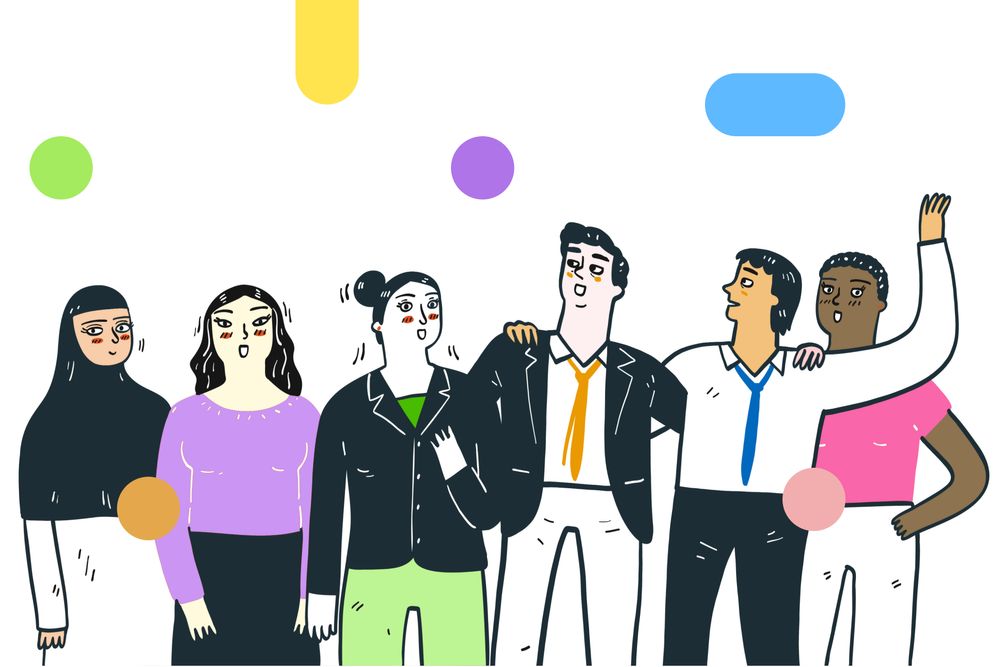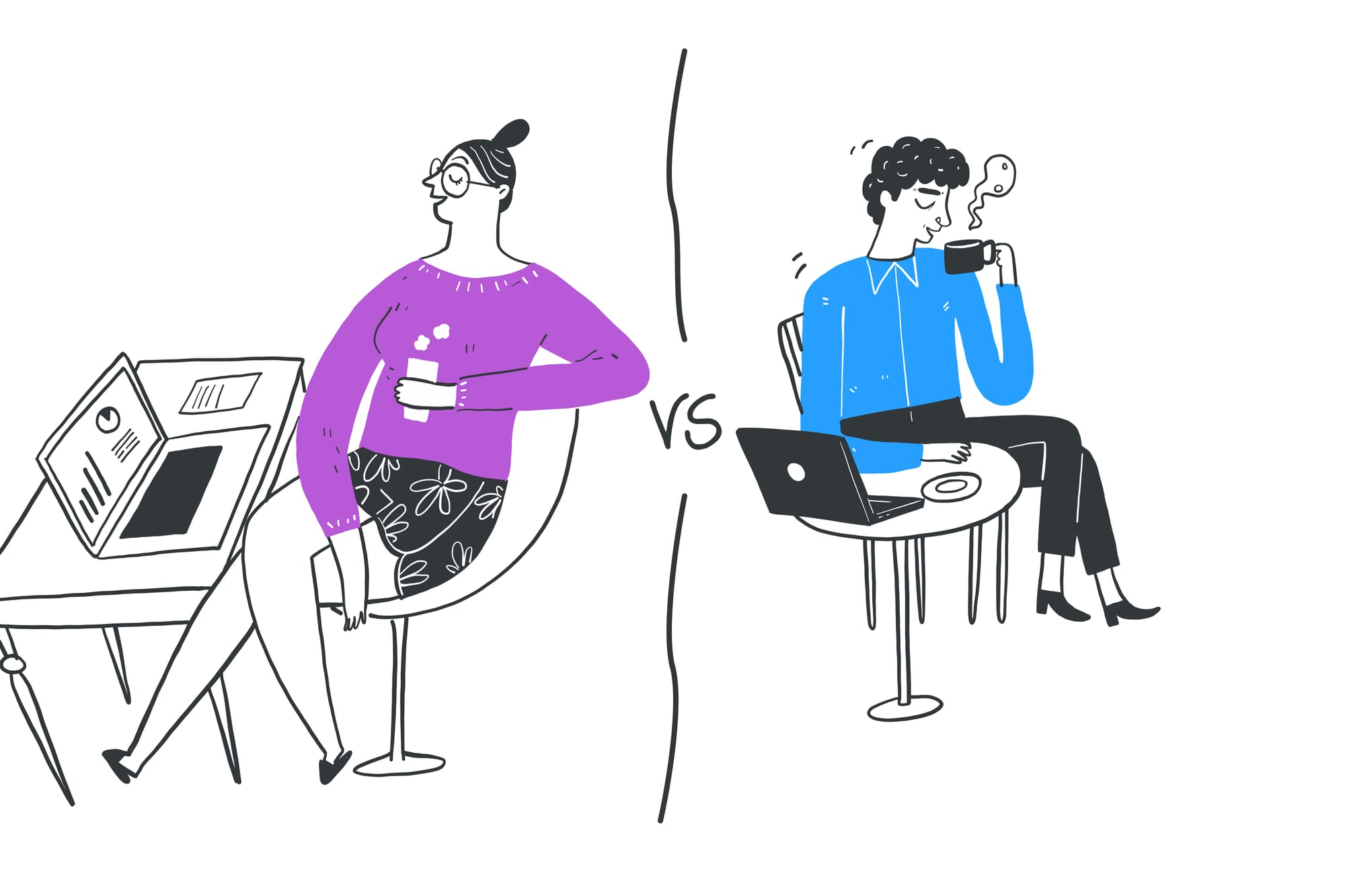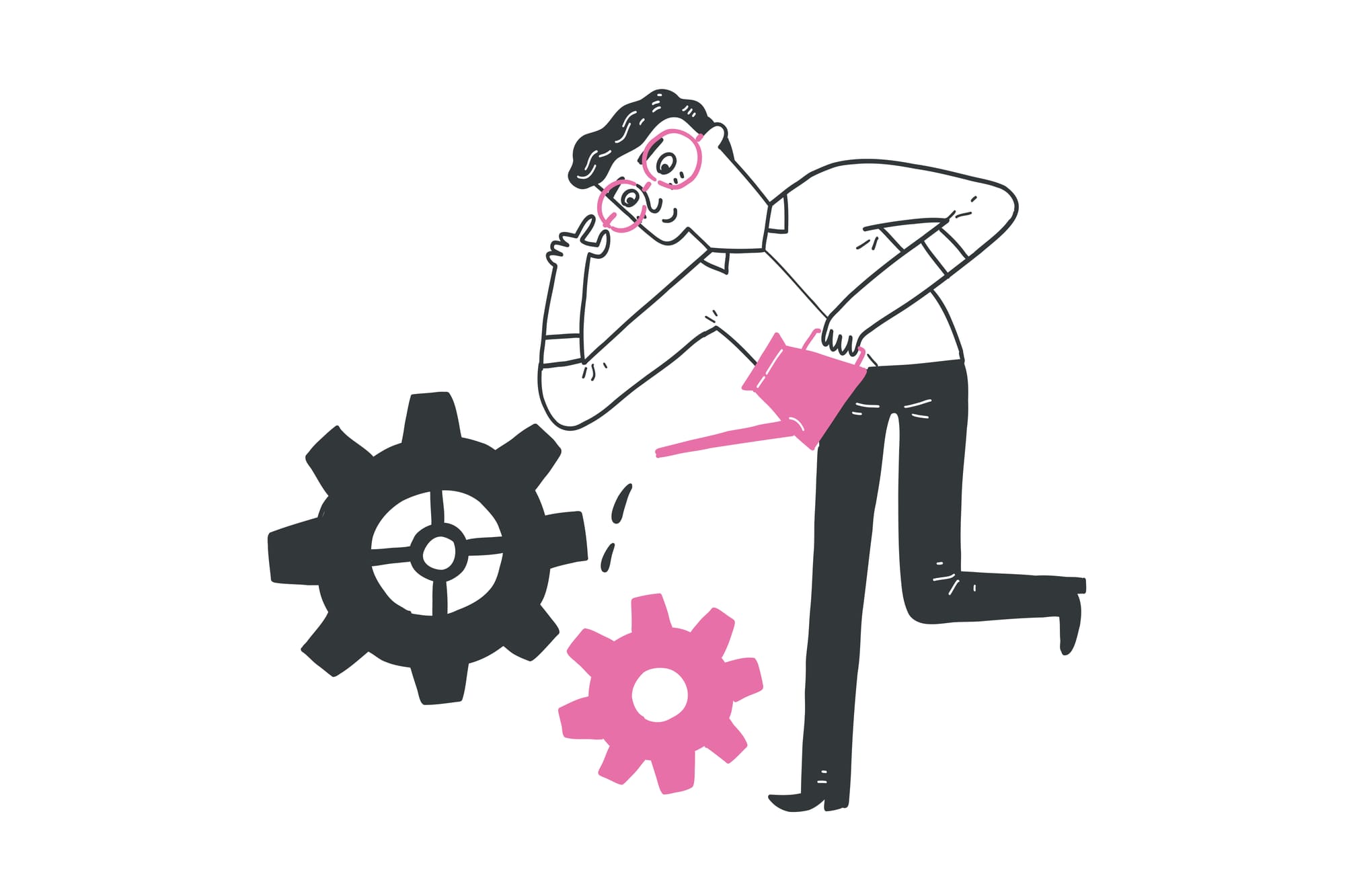Diversity, Equity, and Inclusion (DEI) are more than just buzzwords these days - they’re essential parts of building thriving and successful teams, whether you work at a startup, an SME, or a big corporation.
Each element plays a crucial role in shaping a workplace culture that embraces individual differences, provides equal opportunities, and fosters a sense of belonging for all team members. Here’s what the DEI stands for exactly.
Diversity
Diversity refers to the presence of individuals from various backgrounds, including but not limited to race, ethnicity, gender, sexual orientation, age, religion, physical abilities, and socioeconomic status.
High levels of diversity at the workplace create an environment with different perspectives, experiences, and skill sets. All this contributes to a more well-rounded and innovative workforce. Embracing diversity encourages creativity and enables the team to tackle challenges from multiple angles. As Malcolm Forbes once said, diversity is "the act of thinking independently together."
Equity
Equity focuses on ensuring that all team members have fair and unbiased access to opportunities and resources. It involves recognizing and addressing systemic barriers that certain groups may face, such as discrimination, bias, or unequal access to professional development. Practicing equity means creating an environment where everyone has an equal chance to succeed and advance in their careers, irrespective of their background or identity.
Inclusion
Inclusion involves actively involving all team members and valuing their contributions. It's about creating a sense of belonging and psychological safety for every individual, so they feel comfortable bringing their authentic selves to work. Inclusive teams foster an environment where everyone's voice is heard, ideas are respected, and diverse perspectives are actively sought and valued.
The Intersection of DEI
DEI is an interconnected framework that requires all three elements. When implemented effectively, there are numerous benefits that include:
- Enhanced Creativity and Innovation: A diverse and inclusive team brings together individuals with different experiences and backgrounds, leading to more creative problem-solving and innovative solutions.
- Improved Team Performance: Inclusive teams build trust, foster collaboration, and promote open communication, which contributes to improved team performance and productivity.
- Attracting Top Talent: Organizations that prioritize DEI are more likely to attract and retain top talent from diverse backgrounds.
- Better Decision-Making: Diverse teams consider a wider range of perspectives, leading to well-rounded and informed decision-making processes.
- Increased Employee Satisfaction: When employees feel valued, respected, and included, they are more satisfied with their work and more likely to stay with the organization.
Understanding DEI in Software Development
Research shows that companies that successfully create inclusive and diverse dev teams tend to perform better than homogeneous ones. However, it’s not that easy to fully implement DEI. Or better to say that there’s more talk on the subject in the tech world than actual doing.
Below are some compelling statistics that underscore the need to proactively take action. Based on research conducted by Zippia:
- Women in the US make up only 22% of software engineers, while men account for 78%.
- Approximately 48.5% of American software engineers are White, followed by 34% Asian, 8.1% Hispanic or Latino, and 4.8% are considered Unknown.
- 8% of all software engineers are LGBTQ.
- Women earn 93¢ for every $1 earned by men.
How Can Software Engineering Managers Promote DEI When Building Technology?
DEI-Focused Education
One of the first steps towards promoting DEI in software development is to educate ourselves by attending conferences and workshops. We need to understand the challenges and barriers faced by underrepresented groups and how they impact the workplace.
Other ways of learning about DEI include:
- Inviting diverse guest speakers or organizing panel discussions that provide exposure to varied perspectives.
- Employee Resource Groups (ERGs) can be supported to create spaces for connection and initiative proposals.
- Supporting developers working on inclusive projects empowers them, and tracking progress and seeking feedback ensures continuous improvement.
Committing to ongoing education and self-awareness also helps address our own unconscious biases, which are ingrained stereotypes and attitudes that affect our decision-making, actions, and perceptions without us even realizing it.
In software engineering management, recognizing and addressing unconscious bias helps create a fair and inclusive work environment. Unchecked biases can lead to unintentional discrimination and hinder the full potential of diverse team members.
Set DEI Goals and Hold Ourselves Accountable
As an engineering manager, you should set DEI goals that work toward having a more diverse and inclusive workplace. Achieve this by prioritizing the increased representation of underrepresented groups in both hiring and promoting. Take steps such as creating diverse interview panels, anonymizing applications, and reviewing your hiring process.
To ensure effectiveness, link these goals to metrics to track progress. Moreover, hold yourself accountable and communicate progress regularly to your dev teams. By taking these initiatives, you pave the way for a more inclusive and equitable environment within your organization.
Foster an Inclusive Culture
At the agency I run, we strongly believe that it’s important to have a “Normal Work Environment” — we even have it as our company slogan written on our wall (see it here in our post on building high-performing dev teams). But we also make an effort to create a “normal and inclusive work environment,” which has helped us attract and retain a diverse workforce.
We do this by ensuring all our developers feel valued and respected. We have regular surveys that gauge happiness and job satisfaction. The questionnaires we send out at the beginning of every quarter also give us a good idea about how our developers feel working on their projects.
Actively Recruit and Promote Diversity
Another critical aspect of promoting DEI is to actively recruit and promote diversity. We can broaden our recruitment pool by partnering with organizations that serve underrepresented groups, actively seeking out candidates with diverse backgrounds, and offering internships and mentorship programs to underrepresented groups.
Lead By Example
Finally, as software engineering managers, we need to lead by example. We can model the behavior we want to see in the workplace by embracing diversity, being inclusive, and standing up against discrimination or bias. We can use our influence to advocate for DEI policies and practices and ensure that our team understands the importance of DEI.
So, to sum up: diversity, equity, and inclusion are critical components of a healthy and successful workplace culture. As software engineering managers, we have a unique responsibility to lead the charge and create an environment that values and celebrates differences.





